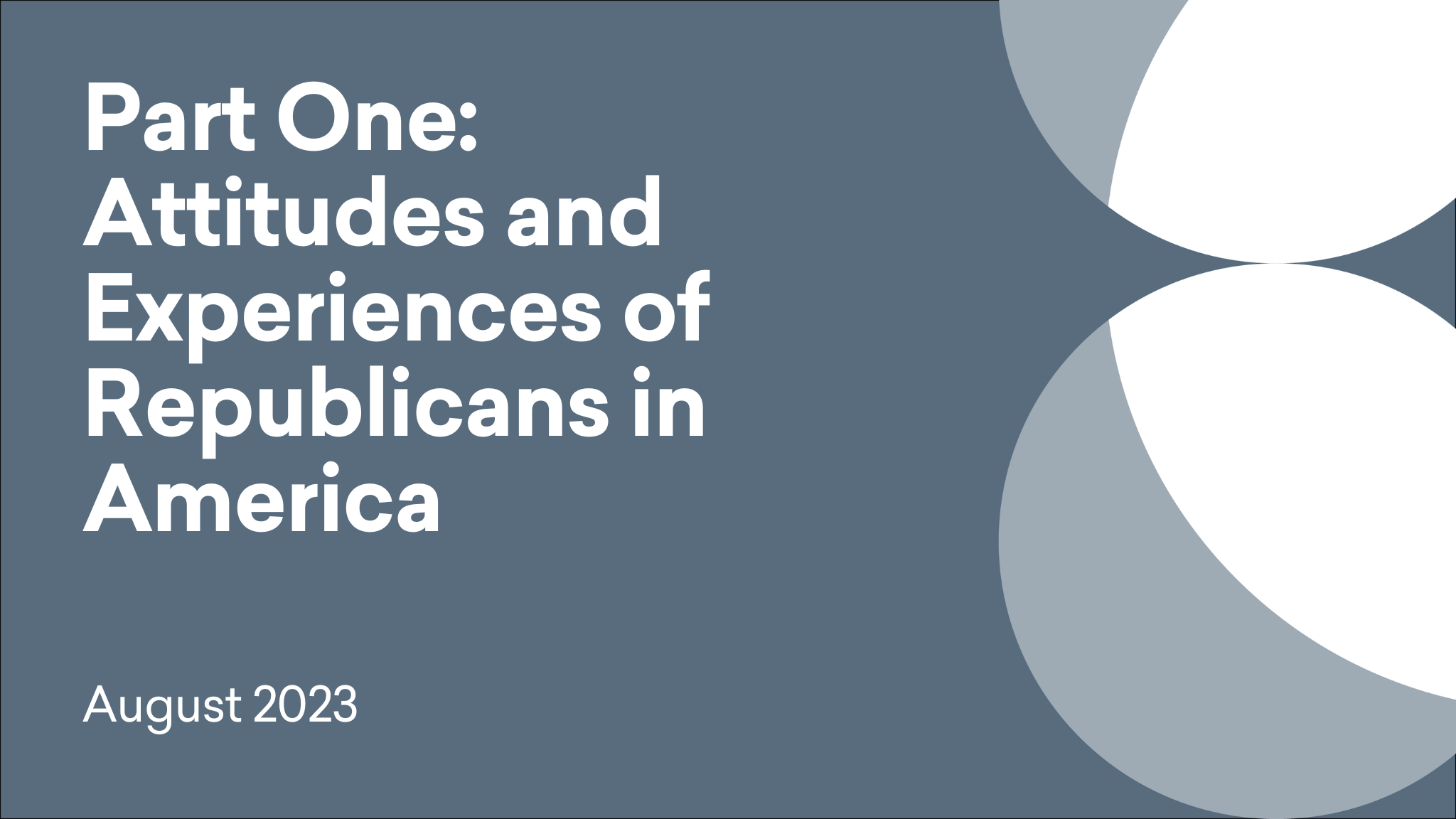
21 August 2023
November 7, 2023
American Identity
Our national survey of 800 registered Republican voters highlights the nuances in beliefs, attitudes, and behaviors of Republicans by their self-reported ideology (moderate, conservative, and very conservative) and gender.
Polling Firm: YouGov
Sample Size: n=800 registered Republican voters
Fieldwork Dates: August 8-14, 2023
Margin of Error: +/- 3.7 for registered Republican voter avg.
of Republicans say “Being American” is an important or very important part of their identity.
of “very conservative” Republicans are worried they will be left behind given the rapid pace of change, compared to 10% of “conservative” Republicans.
of Republican women say religion is very important of somewhat important, compared to 67% of Republican men.
As the 2024 Republican primary kicks off, polling and political commentary are naturally focused on exploring which candidates Republican voters support. There is an obvious and important logic to this approach—knowing which candidate people support is a good predictor of how people will vote, and any organization interested in political outcomes in America wants to track and influence what candidates gain support among various segments of the population.
Yet at More in Common, while we too are interested in this question, we are also interested in the core beliefs, attitudes, behaviors, and preferences that shape Republican voters’ candidate choices—which can get lost in commentary that often simply classifies voters into Candidate X voter vs. Candidate Y voter.
In August, we conducted a survey of 800 registered Republican voters to seek to answer these questions. We released part one of our research on “Attitudes and Experiences of Republicans in America” which explored the identities, priorities, and places of belonging of the Republican electorate.
In this report, we used the same survey data to dive deeper into the Republican electorate. In the first section, we look at differences in Republicans based on their self-reported political ideology (moderate, conservative, or very conservative). In the second part, we turn our attention to Republican women and how they differ from Republican men.
While some of our insights align with trends of American women in general—such as that women tend to be more religious than men—our insights show there is nuance and underlying differences between what is shaping female and male Republican voters.
As our national news continues to become saturated with election coverage and polling, we hope this report provides an opportunity to uncover the complexities and differences in what shapes our identities as Americans.
Explore the depth of our research at your fingertips. Get the complete insights by downloading the full report today.
What unites and divides Americans today? This newsletter takes a closer look at issues pressing on America’s social and political fabric and provides recommendations for how to strengthen ties to keep us bound together.